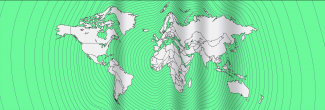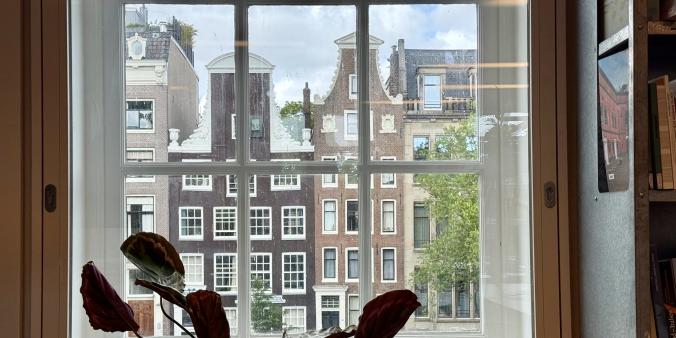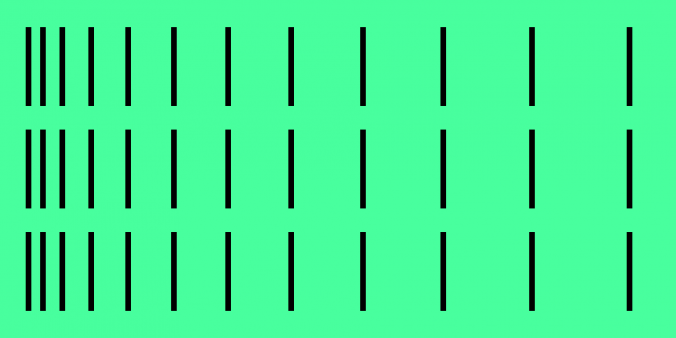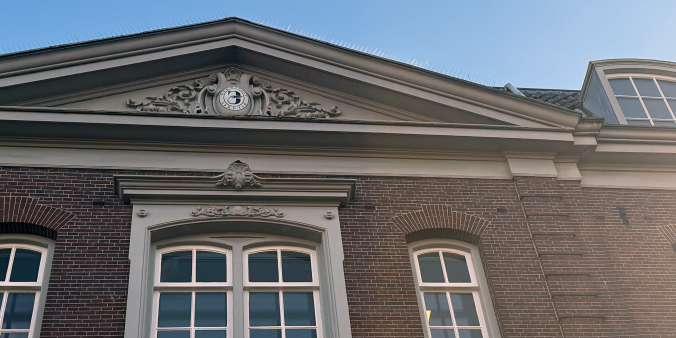
General
- What is DutchCulture?
DutchCulture is the network and knowledge organisation for international cultural cooperation. We support the Dutch cultural and creative sector, public authorities and diplomatic missions in the pursuit of their international ambitions.
DutchCulture is the Dutch government’s partner in the implementation of international cultural policy. We are commissioned by the Dutch Ministries of Education, Culture and Science and Foreign Affairs, and the European Commission.
- What does DutchCulture do?
If you have international cultural ambitions, DutchCulture can help you gain a footing on the international stage. We give information, advice and training on international cultural cooperation. We connect cultural and creative professionals, organisations, public authorities and networks with each other and with international partners in the context of international cultural cooperation. We identify developments and investigate themes and domains that are relevant to successful collaboration. We share the knowledge and insights with the cultural and creative sector in the Netherlands.
- What areas does DutchCulture operate in?
DutchCulture collaborates with the Dutch cultural and creative sector, which involves working with all relevant parties, from individual artists to cultural organisations and public authorities. We also collaborate with non-Dutch parties wishing to engage in projects and activities with Dutch artists and cultural organisations.
DutchCulture does not operate on behalf of a specific branch of Dutch culture. We focus on collaboration across sectors and the exchange of knowledge with the cultural, educational and scientific sectors.
We work with other Dutch partners to implement the Netherlands’ international cultural policy, including EYE, Het Nieuwe Instituut, the public cultural funds, the National Archives of the Netherlands, the Cultural Heritage Agency of the Netherlands, and the Dutch diplomatic missions.
DutchCulture is a member of several international networks such as IETM, On the Move, IFACCA and EUNIC. EUNIC is the European network of organisations engaging in cultural relations, in which DutchCulture represents the Netherlands.
- Why does DutchCulture have advisors for specific countries?
Our advisors offer tailored advice on cultural collaboration with 17 countries in particular. The Dutch government stimulates cultural activities in prioritised countries to help strengthen the Dutch profile in those countries and to create a strong position for the cultural and creative sector. DutchCulture is the government’s partner in the implementation of international cultural policy.
For an overview of these countries, see here. Find further information on the specific country pages and/or contact our advisors directly.
If you want to work with another country, do not hesitate to contact us. We will be glad to help you.
- How does DutchCulture collaborate with embassies and consulates?
DutchCulture helps staff at Dutch diplomatic missions abroad to match what Dutch culture can offer with local demand. We work with Dutch embassies and consulates to implement the Netherlands’ international cultural policy, fulfilling a supporting role. We also organise working visits, public and restricted meetings for Dutch diplomatic staff in the countries prioritised in international cultural policy.
Embassies and consulates can contact us for information and advice, often tailored to the requestor’s needs. We also keep Dutch diplomatic missions informed of the latest developments in international cultural cooperation through our news page and newsletter. For an overview of our channels, see here.
DutchCulture & you
- What can DutchCulture do for me?
If you have international cultural ambitions, you can make use of our network, information and expertise to gain a footing on the international stage.
You can attend one of our events or contact our advisors directly for tailored advice. We are always glad to offer guidance to individual artists and cultural organisations that have questions with regard to planning international activities, mobility and collaboration. For more information please contact the Mobility Info Point.
Our website forms a vast source of information on international programmes and opportunities for international cultural cooperation. You can use the website, for example to:- Obtain information on specific thematic, disciplinary and/or networking opportunities in the 17 focal countries in current international cultural policy.
- Obtain information on calls and support for your (potential) projects and activities with European partners through our Creative Europe Desk NL.
- Find a suitable artist residency abroad or in the Netherlands, potential financial support and international contacts through our TransArtists platform.
- Explore our financial support options under the International Heritage Cooperation programme and the Europe + Heritage programme.
- Become acquainted with the visitors’ programmes available in the Netherlands for non-Dutch cultural professionals and/or heritage professionals.
- Search the DutchCulture database of Dutch cultural activities abroad for contacts, collaborations or trends per year, country and more.
- Read our online news page for background articles and special publications in addition to the latest news on international cultural cooperation and the Netherlands.
- Can DutchCulture help me arrange financing for my international cultural or creative project?
DutchCulture is a network and knowledge organisation for international cultural cooperation. We can refer you to a range of cultural funds and other international grant programmes and facilities. For the most complete overview, download our Cultural Mobility Funding Guide. For more information related to funding go here: dutchculture.nl/en/funding.
Our Creative Europe Desk NL can support you in your application to the MEDIA (audio-visual sector) and Culture schemes of the Creative Europe programme. For more information about European financing, see this page (in Dutch). You can find out if your project is eligible for other forms of European funding by following the steps in our online EU funding guide (in Dutch).
Do you want to participate in an artist-in-residence programme? Find financial support options in our TransArtists residency guide and also check our many funding tips.
Our country advisors can give you specific information and advice on funding related to one of the 17 countries prioritised in current international cultural policy. Find links to all the different country pages for general information and contact details.
DutchCulture directly manages a Matching Fund intended for Internarional Heritage Cooperation projects. It includes a travel grant fund for Dutch heritage professionals wishing to visit one of the partner and focus countries. It is also possible for a heritage professional to visit the Netherlands in order to start a International Heritage Cooperation project. For the Europe + Heritage programme we provide travel vouchers for heritage professionals and offer a grant scheme to help organise heritage initiatives in Europe.
You can email us to request a consultation tailored to your specific need for information or advice on funding possibilities.
- Can DutchCulture help me with visa applications and questions about laws, regulations, taxes and cultural mobility?
If you have plans to go abroad as a cultural professional, if you are working with foreign artists, performers and intermediaries here in the Netherlands, or if you yourself are a foreign artist or performer working here, DutchCulture’s Mobility Info Point is available to advise you.
We exchange information about best practices and common obstacles in international cultural traffic, for instance with the international network for cultural mobility On the Move.
Please note that our Mobility Info Point only offers advice. We cannot influence how visa applications or other requests to public authorities are processed. We also do not check tax returns or application forms. If you need help in any of these areas, we recommend you contact the relevant authorities, a tax advisor or an immigration lawyer.
See this page for more information on laws and regulations.
For tailored advice you can send us an email.
- Can DutchCulture help me find an artist residency outside the Netherlands?
We are always glad to help you search for a suitable residency, potential financial support and international contacts. If you are interested you can make an appointment directly for a personal consultation. Alternatively, you can contact our Mobility Info Point.
DutchCulture provides background information and an overview of more than 1,500 artist-in-residencies around the world, where artists can temporarily stay and work. Please consult the TransArtists residency guide on our website for more information. The guide also contains an informative checklist.
In addition, see the Cultural Mobility Funding Guide NL for an overview of the support that might be available for travel and accommodation costs.
- What can the Creative Europe Desk NL do for me?
DutchCulture hosts the Creative Europe Desk NL, which is the service and information point for the Creative Europe programme of the European Commission in the Netherlands.
You can contact the Creative Europe Desk NL for:
- Information about the various Creative Europe schemes for the cultural and audio-visual sector;
- Advice and supervision when applying for Creative Europe funding;
- Help or mediation in searching for specific information or possible partner organisations in other European countries;
- Information about other European funds and additional funding.
The Creative Europe Desk NL is not just an information desk, but it also gathers input from the sectors in order to inform the European Commission and the Netherlands’ Ministry of Education, Culture and Science about the needs of the Dutch audio-visual and cultural industry. The desk regularly organises public activities from which professionals can benefit.
- Can DutchCulture help me to contact a cultural attaché?
A cultural attaché at a diplomatic mission outside the Netherlands supports Dutch cultural cooperation and activities locally. If you want to get in touch with a cultural attaché or cultural officer, our country advisers can help you obtain the most recent contact details. Alternatively, see the Netherlands’ central government’s website Netherlands Worldwide in Dutch or in English.
- Can I contact DutchCulture for information about my Dutch ancestry?
DutchCulture does not collect data in this area. The CBG (Centrum voor Familiegeschiedenis – Centre for Family History) can help in this regard.
DutchCulture online
- What online tools does DutchCulture offer to support my international cultural or creative project?
DutchCulture has developed a number of online and offline tools to make it easier for you to work internationally. See the list of these tools and publications below.
Funding tools
- Cultural Mobility Funding Guide NL (last update: 2019, pdf) - Guide to Dutch financing for international projects and financial support to travel outside the Netherlands.
- European Funding Guide (last update: 2020, Dutch) - A quick guide to find out whether your project is eligible for European funding.
- Funding opportunities for individual artists (last update: 2020) - Overview of international funds for individual artists, with an emphasis on financing travel and residency.
Mappings & databases
- DutchCulture Database - Overview of Dutch cultural exports.
- TransArtists, your artist-in-residence guide - More than 1,500 artist-in-residencies in over 90 countries. You can search per art discipline and country.
- What is the DutchCulture Database?
The DutchCulture Database is a unique database that tracks the international cultural activities of makers from the Kingdom of the Netherlands. The data concerns cultural activities that take place outside the Netherlands in all art disciplines. The database is publicly available online on our website and is continuously updated.
Every year, DutchCulture creates an annual mapping of Dutch international cultural activities per country and per sector. All the overviews of the past years can be found here. The data are also used for the coordination, monitoring and evaluation of the Netherlands’ international cultural policy.
We also produce custom mappings for municipalities, regions, and funds on request.
Makers can add their own activities to the database through MyDC.
If you have questions about the database, please contact e.chang@dutchculture.nl
- What is MyDC?
MyDC is a user portal that allows makers from the Kingdom of the Netherlands to add their own activities to the Cultural Database. Once you create an account you can claim your page in the database (or add a new one, if you're not already in the database), and add/edit the list of your international activities.
Each submission to the database via MyDC is checked by us before being published to reduce the risk of errors.
Practical information
- What costs are associated with DutchCulture’s services?
DutchCulture provides its services free of charge. DutchCulture is a foundation and receives a four-year subsidy (2017 to 2020) from both the Netherlands’ Ministry of Education, Culture and Science and the Ministry of Foreign Affairs. We also receive a contribution from the European Commission for our European activities.
- How can I make an appointment?
We are always glad to share our information, advice and contacts with you. Due to the Corona situation, all consultations and meetings are currently conducted online or by phone, but we hope to welcome you to our office again in the near future.
Telephone +31 (0)20 616 4225
Email post@dutchculture.nlOr visit our contact page.
For the contact details of all our advisors, see this page.
- How can I remain informed about your services and activities?
If you would like to receive news and invitations to events straight in your mailbox, you can sign up here.
Our website offers an overview of all our upcoming events. Read our online news for informative and inspirational articles in addition to the latest news on international cultural cooperation and the Netherlands.
We use Instagram, Facebook and LinkedIn to update you daily on recent developments and upcoming activities. You can also follow our advisors on these channels.
Background information
- What do we mean by the cultural sector?
When we refer to “the cultural sector” or “the cultural and creative sector”, we mean cultural and creative professionals, organisations and institutions in all artistic disciplines (performing arts, visual arts, film and literature), cultural heritage and the creative industry (architecture, design, and digital culture).
- What is the Dutch cultural policy?
Dutch cultural policy aims to provide access to high-quality culture for as many people in the Netherlands as possible. In practice this means that the central government supports institutions of national and international significance. Municipalities and provinces also play an important role in the public financing of culture, including cultural education and amateur art.
The principles and objectives of the current Dutch cultural policy (2018-2020) are outlined in the letter by the Minister of Education, Culture and Science, Ingrid van Engelshoven (in Dutch). Read more about the new cultural policy for 2021-2024 here (in Dutch).
If you are interested in the background of Dutch cultural policy, you can read the publication Culture at a first Glance (in English).
- What is the Dutch international cultural policy?
The Dutch international cultural policy aims to boost the quality and international visibility of the Dutch cultural sector. At the same time, the policy furthers the objectives of Dutch foreign policy and is used for cultural diplomacy. The international cultural policy is a joint policy of the Ministers of Education, Culture and Science, of Foreign Affairs, and of Foreign Trade and Development Cooperation.
Dutch (international) cultural policy is determined every four years. Read more about the current international policy (2017-2020). Interested in the new international cultural policy for 2021-2024? Find more information here.
The Dutch government maintains an infrastructure of institutions that stimulates and facilitates exchange, presentation and cooperation, such as embassies, funds and supporting institutions. Within this infrastructure, DutchCulture has a coordinating, advisory and informative role. We currently carry out coordination for 17 prioritised countries.
Our campaigns and the DutchCulture Database make international events visible online. We also use this data to monitor international cultural policy.
- What is International Heritage Cooperation?
Over the course of history, the Netherlands has both left and absorbed countless traces and cultural influences on and from around the world. These include tangible traces such as buildings, shipwrecks, religious objects, but also intangible traces such as sayings, culinary dishes and traditions. Some of these traces reflect a more peaceful and reciprocal history, such as the trade between the Netherlands and Japan, while others are tied to violence, such as the colonial occupation and exploitation of Suriname and Indonesia.
International cooperation can help preserve, manage and make visible this cultural heritage that connects the Netherlands with other communities, countries and regions. Collaborative projects can generate new insights, stimulate reciprocal interest, acknowledge difficult pasts, and open up new opportunities.
Partner countries, focal countries
International Heritage Cooperation is part of the Netherlands’ international cultural policy. The Dutch Ministries of Foreign Affairs and of Education, Culture and Science have formulated this policy for the period 2020 – 2024 with a main focus on ten partner countries:Australia, Brazil, India, Indonesia, Japan, Russia, South Africa, Sri Lanka, Suriname and the United States.
Yet, in this policy period, we will also cooperate with the other priority countries of the Dutch government’s international cultural policy: Belgium, China, Germany, Egypt, France, Hungary, Italy, Morocco, Poland, Spain, Turkey, the United Kingdom and South Korea.
Partners
The embassies of the Netherlands in the ten partner countries have a budget for supporting local cultural heritage projects. In the Netherlands, four institutes are responsible for the implementation of the International Heritage Cooperation Policy in close cooperation with governments, institutions and organisations in the partner countries: DutchCulture, centre for international cooperation, the National Archives of the Netherlands, the Cultural Heritage Agency of the Netherlands, and the Dutch Centre for Intangible Cultural Heritage. Jointly, these organisations aim to foster local demands in the partner countries and link the individual projects.To keep up to date with new activities and projects, you can also subscribe to the International Heritage Cooperation Newsletter.




